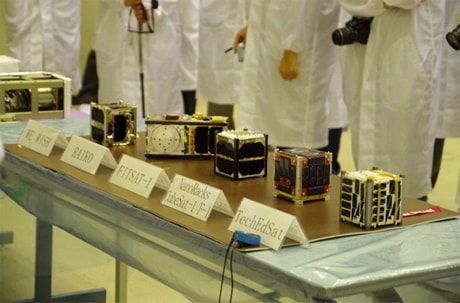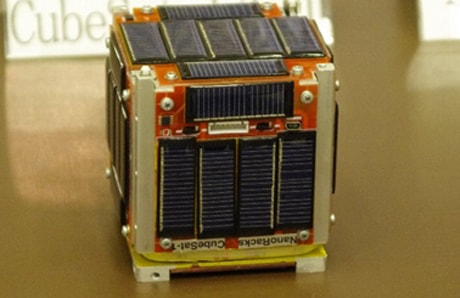FPT satellite is about to fly into space
After passing the flight safety assessment, the satellite manufactured by FPT Corporation will participate in the small satellite launch program organized by Japan and the US next month.
 |
| Five small satellites will be launched into space. Satellite F-1 is located second from the right. Photo: FPT. |
FSpace Space Research Laboratory, FPT Technology Research Institute - FPT University, F-1 satellite has passed the flight safety assessment, met the technical standards of the Japan Aerospace Exploration Agency (JAXA) and was officially accepted to participate in the small satellite launch program jointly organized by JAXA and NASA.
The F-1 has now been brought to the Tsukuba Space Center in Japan to be assembled with four other small satellites. Technical staff are preparing to load them onto the small satellite launcher.
All five satellites will then be transported to the Tanegashima Space Center on Tanegashima Island in southern Japan, where they will be installed on a transport ship and finally placed on a rocket. The launch is scheduled for 11:18 a.m. (Japan time) or 9:18 a.m. (Hanoi time) on July 21, 2012.
 |
| F1 small satellite produced by FPT Corporation. Photo: FPT. |
On June 25, NHK General TV, Japan broadcast a short report about the upcoming program to launch a small satellite to the International Space Station. This is probably the last footage of the F-1 before it is assembled on a rocket and launched into orbit.
Mr. Vu Trong Thu, Head of FSpace Department at FPT University, said: "In addition to gradually mastering space technology to move towards practical applications, the FSpace group wishes to bring hope to the future and convey the message to Vietnamese youth: Space is no longer too far away, we can do things that seem impossible if we have determination!".
The F-1 small satellite measures 10x10x10 cm and weighs 1 kg. The FSpace team began researching and building it in late 2008, with the goal of being able to "live" in space and transmit signals to the Earth control station, take low-resolution images (640x480) of the Earth and the data transmission speed from the satellite reaches 1,200 bits/second.
In the world, the trend of manufacturing small satellites (under 50kg) has been growing strongly in the past 10 years. The advantages of micro satellites are short manufacturing time, low cost and more capacity when using a whole satellite cluster. However, for Vietnam, this is still a very new field. Therefore, many experts in the industry believe that if successful, FPT will become the first private enterprise in the country to successfully manufacture small satellites, contributing to the development of science and space industry in Vietnam.
According to Vnexpress - NT






